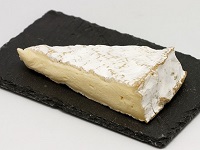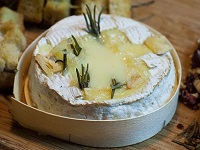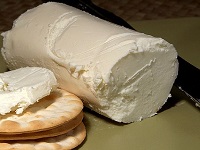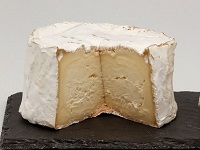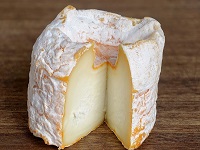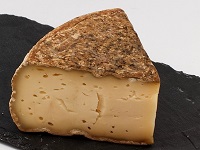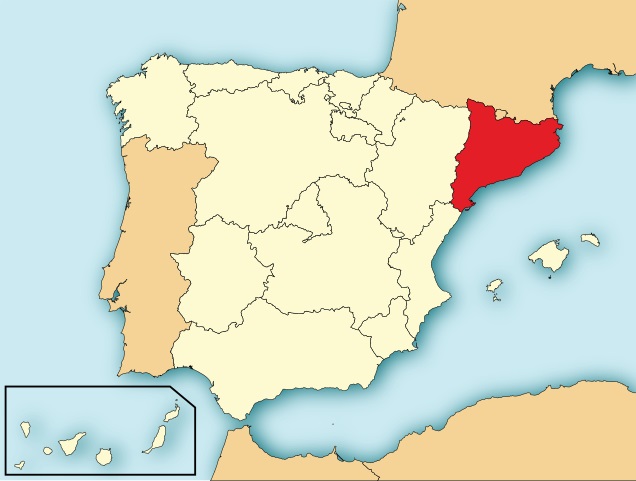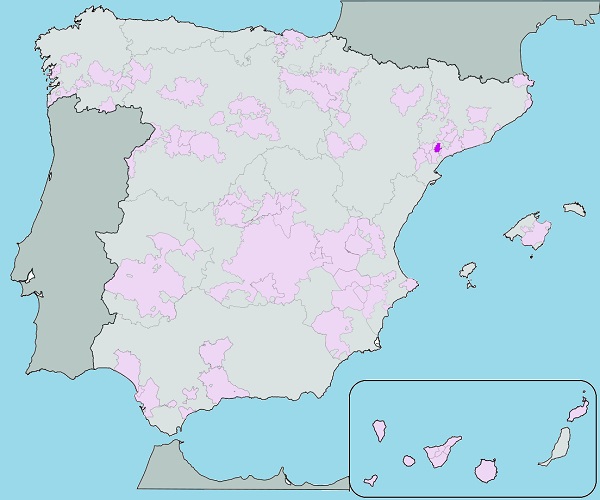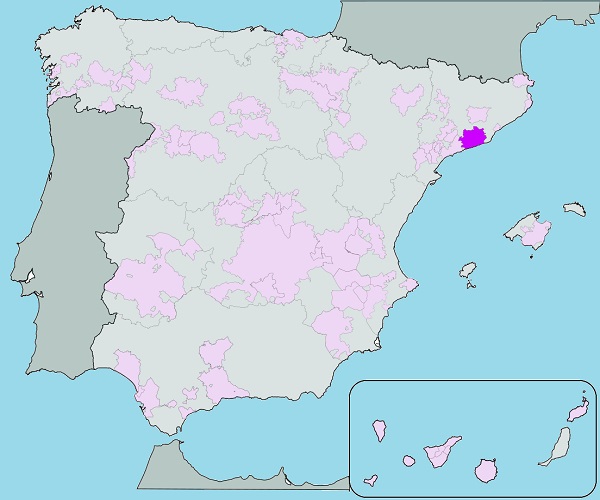Cava (Spain)
Spanish Cava is produced the same way as French Champagne.
In Spain the method is called Método Tradicional.
The grapes used are Macabeu, Parellada, and Xarel-lo.
Cava Flavors
Typical Cava flavors are Lemon, Lime, Apple, Almond, and Minerality.
Lemon |
Lime |
Apple |
Pear |
Flowers |
Honey |
Almonds |
Minerals |
Cava Profile
Cava is more Fruity than French Champagne, but not as Sweet as Italian Prosecco:
| SUGAR: | Dry (3 g/l) |
| BODY: | Light |
| FRUIT: | Medium |
| ACIDITY: | High |
| ALCOHOL: | 10.5-12.5% ABV |
| Serving temperature: 8-10°C (46-50°F) | |
Cava Food Pairing
You can drink sparkling wine to almost everything, whether it is Champagne, Cava, or Italian Prosecco.
Cava pairs very well with salty food, because the bubbles break up the salt in the mouth. The acidity and bubbles also pair well with rich food, creamy and oily dishes.
Aperitif |
Salads |
Vinaigrette |
Tapas |
Seafood |
Oysters |
Salmon |
Sushi |
Fish |
Chicken |
Pork |
Fries |
Risotto |
Sandwitch |
Egg |
Asparagus |
Excellent Pairings
Eggs. Srambled. Frittata.
Tapas. Nuts. Olives.
Fried Fish. Fried Chicken.
Sushi. Smoked Salmon.
Ham. Serrano. Prosciutto.
Rice. Risotto. Pasta.
Chips. French Fries.
Vinaigrette. Green Salad.
Artichoke. Asparagus.
Spanish Specialities
Gambas al Ajillo (Prawns in Chili and Garlic).
Fish Pie. Pan con Tomate.
Tortilla. Valencian Paella.
Zarzuela (Seafood Stew).
Jamón Ibérico.
The Ideal Glass for Cava
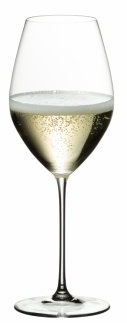
|
A Champagne Glass with a bell that points to the bottom, allows a pilar of bubbles to build up inside the glass. This is not only beautiful, but also extends the "life" of the champagne. A wide middle section lifts the aromas out of the wine. A smaller opening concentrates the scent to the nose and directs the drink to the front of the tongue where it heightens an experience of sweetness. |
Cava Cheese Pairing
Brie and Camembert
The creamy, buttery texture and mild flavors of Brie or Camembert pair well with Cava's soft bubbles and fruity notes. Serve the cheese at room temperature with slices of pear or apple.
Chèvre (Goat Cheese)
The tangy, fresh flavors of goat cheese complement the acidity often found in Cava, especially those made from Chenin Blanc or Sauvignon Blanc. Drizzle with a bit of honey or sprinkle with fresh herbs.
Chaource
This creamy, slightly tangy cheese enhances Cava's gentle acidity and complements its soft bubbles. Serve with fresh berries or a touch of apricot jam.
Langres
This mild, washed-rind cheese has a creamy texture and a subtle tang that pairs beautifully with Cava. Add a small drop of honey or serve with fresh grapes.Tomme de Savoie
This semi-hard, nutty cheese pairs beautifully with the gentle effervescence and often fruity character of Cava. Add some dried fruits or nuts to highlight the pairing.
Spanish Sparkling
In Spain, Sparkling wine is called Cava, which means "Cellar".
Cava used to be called "Spanish Champagne", but this is no longer permitted in EU, since Champagne is a protected French name.
95 % of all Cava is made in the Penedès wine region in Catalonia, but Cava DO (Denominación de Origen) is not region based. Cava can be made anywhere in Spain, as long as it follows the DO production rules.
Cava is an important part of the Catalan and Spanish tradition. It is consumed at any celebration (baptisms, marriages, banquets, dinners, and parties).
Cava Production Method
The production method is the same as for Champagne, but with main grapes:
- Macabeu
- Parellada
- Xarel-lo
The official hierarchy of Cava DO is:
- Cava - aged for 9 months
- Cava Riserva - aged for 18 months
- Cava Gran Riserva - aged for 30 months
Much like French Champagne, different categories are produced: White or Rosé, Cava Brut (dry) or Cava Dulce (sweet), mono-varietal cuvées or prestige blends.
Grapes Allowed in Cava
| Macabeo (Viura) | The backbone of Cava. Gives fruit, acidity, and freshness to the blend. It needs the higher elevation Penedès for top-quality fruit. |
| Parellada | Gives freshness and perfume to the blend. It grows best in cooler sites like Macabeo to maintain the acidity in the warm summer months. |
| Xarel-lo | Produces an excellent base wine with high levels of natural preservatives (resveratrol). Cavas intended for ageing are produced with 60% Xarel-lo in the blend. |
| Chardonnay | Can deliver fresh and aromatic Blanc de Blanc wines fro higher-altitude vineyard. |
| Pinot Noir | Produces some top level Blanc de Noir Cavas (100% Pinot Noir) from some high elevation vineyards in Catalonia. |
| Garnacha | Used to make rich and full-bodied Rosé Cavas with deep colour and spicy flavors. |
| Monastrell | Basically used producing Rosé Cavas with moderate acidity. |
| Trepat | Ideal for making Rosé Cavas with intense colour, moderate alcohol and balanced acidity. |
| Subirat Parent | Malvasía from La Rioja. Used for making Dulce and Semi Dulce Cava. |
Méthode Champenoise
Méthode Champenoise is the method used to produce French Champagne.
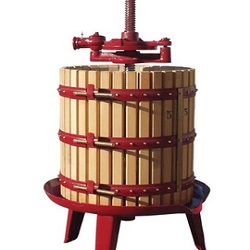 |
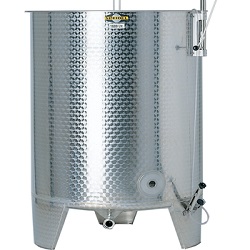 |
||
| Pressing | 1st Fermentation | Blending | 2nd Fermentation |
| Riddling | Disgorgement | Dosage | Aging |
With Méthode Champenoise, the first fermentation takes place in a tank, and a second fermentation takes place in the bottle.
The second fermentation starts by adding yeast and sugar to the bottle, and after about 1 year, the bubbles are completely developed.
The legend tells the story that a Benedictine monk (Dom Pérignon 1639-1715) invented sparkling wine when he bottled a wine too early, but the oldest recorded sparkling wine is Blanquette de Limoux (1531).
Champagne Sugar Levels
| Regulation EC 607/2009 |
Sugar gram/litre |
Calories /glass |
| Brut Nature (Brut Zero) | 0-3 | 3 |
| Extra Brut | 0-6 | 5 |
| Brut | 0-12 | 7 |
| Extra Dry (Extra Sec, Extra Seco) | 12-17 | 10 |
| Dry (Sec, Seco) | 17-32 | 20 |
| Demi (Semi) | 32-50 | 30 |
| Doux (Sweet, Dulce) | 50+ | 30+ |
Region Catalunya
Catalunya is the home of the famous wine regions DO Priorat and DO Penedès.
There are 11 DOs in Catalunya. More than any other region in Spain.
The most widely known and celebrated are Priorat DOCa, Penedès DO and Montsant DO:
Alella DO
Conca de Barberà DO
Costers del Segre DO
Empordà DO
Montsant DO
Penedès DO
Pla de Bages DO
Priorat DOCa
Terra Alta DO
Tarragona DO
Cava Wine Cellar
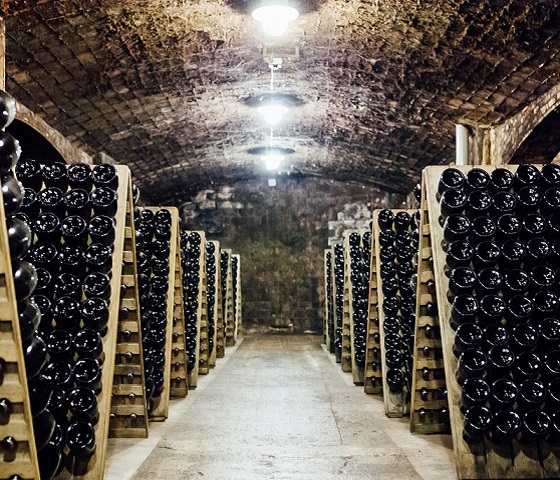
Penedès DO
Penedès is best known for Cava, the Spanish version of Champagne, and accounts for around 95% of the world's Cava production.
Priorat DOCa
Priorat is the star of the Catalonian region and one of the two regions in Spain (along with Rioja) to receive the top DOCa designation.
Priorat is known for its powerful red wines, often made from old-vine Garnacha and Carignan.
Monsant DO
Montsant wraps around the smaller Priorat, and is home to the same old Garnacha and Carignan vines.
It shares much with Priorat, including vines planted at high elevation in similar soils and climate. But the wines come at modest prices ("Poor Man's Priorat).
Grapes
Parellada, Macabeo and Xarel-lo are three white grape varieties which produce good quality white wines, and also marry together to create Spain’s flagship sparkling wine, Cava.
An increasing demand has pushed Spain to plant Cabernet Sauvignon in different regions such as Catalonia, Navarra and La Mancha.
In Catalonia, Cabernet Sauvignon is blended with Tempranillo, Garnacha and Monastrell.
Black Grapes | White Grapes |
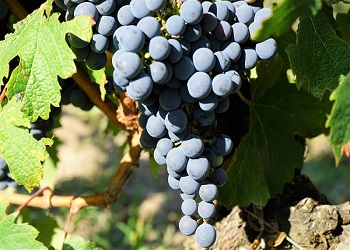
|
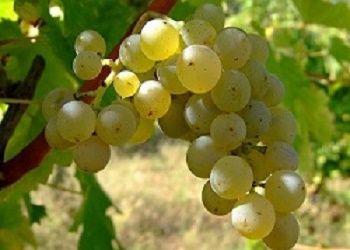
|
Red Wines | White Wines |
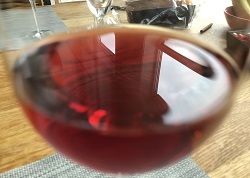
|
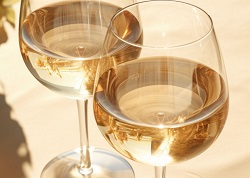
|
Soil | Climate |
|
Hilly |
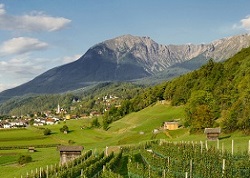
Moderate |
